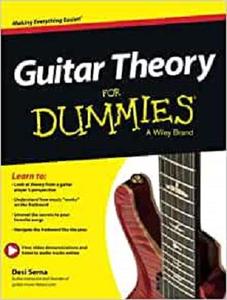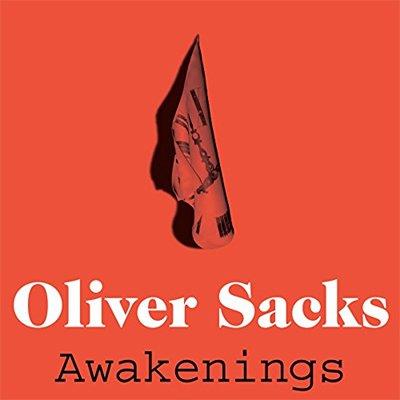
 |
![I'm Right and You're an Idiot The Toxic State of Public Discourse and How to Clean It Up, 2nd Edition [Audiobook]](https://i115.fastpic.org/big/2021/0728/28/b081afc9fcb2e05c1c9d6b06f36f5d28.jpeg) English | ASIN: B08DYBBRMT | 2020 | 9 hours and 23 minutes |MP3|M4B | 258 MB Become a more effective and powerful communicator in today's highly polarized and polluted public square. The most pressing problem we face today is not climate change. It is pollution in the public square, where a toxic smog of adversarial rhetoric, propaganda, and polarization stifles discussion and debate, creating resistance to change and thwarting our ability to solve our collective problems. In this second edition of I'm Right and You're an Idiot, James Hoggan grapples with this critical issue, through interviews with outstanding thinkers and drawing on wisdom from highly regarded public figures. ![Himalaya A Human History [Audiobook]](https://i115.fastpic.org/big/2021/0728/ec/bf86d3abb666f12dccace8a1ab9c68ec.jpeg) English | ASIN: B08WHYKP1F | 2021 | 26 hours and 41 minutes |MP3|M4B | 734 MB For centuries, the unique and astonishing geography of the Himalaya has attracted those in search of spiritual and literal elevation: pilgrims, adventurers, and mountaineers seeking to test themselves among the world's most challenging peaks. But far from being wild and barren, the Himalaya has been home to a diversity of indigenous and local cultures, a crucible of world religions, a crossroads for trade, and a meeting point and conflict zone for empires past and present. In this landmark work, Ed Douglas makes a thrilling case for the Himalaya's importance in global history and offers a soaring account of life at the "roof of the world". Spanning millennia, from the earliest inhabitants to the present conflicts over Tibet and Everest, Himalaya explores history, culture, climate, geography, and politics. Douglas profiles the great kings of Kathmandu and Nepal; he describes the architects who built the towering white Stupas that distinguish Himalayan architecture; and he traces the flourishing evolution of Hinduism, Islam, and Buddhism that brought Himalayan spirituality to the world. He also depicts the story of how the East India Company grappled for dominance with China's emperors, how India fought Mao's Communists, and how mass tourism and ecological transformation are obscuring the bloody legacy of the Cold War.  Guitar Theory For Dummies (Book + Video & Audio Instruction) by For Dummies English | October 14, 2013 | ISBN: 1118646770 | 320 pages | PDF | 1.09 Gb Audio codec: mp3 Audio bitrate: 256 kbps Video format: MP4 Video bitrate: AVC, 1280x720 (16: 9), 29.970 fps, ~ 1 277 kb / s avg, 0.046 bit / pixel Audio: MP3, 128 kbps, 44000Hz, 2 ch ![Globalization (5th Edition) A Very Short Introduction [Audiobook]](https://i115.fastpic.org/big/2021/0728/d6/f4ccc51c67a0dcfb1d05f1b84bb5c6d6.jpeg) English | ASIN: B099FND1KN | 2021 | 4 hours and 57 minutes |MP3|M4B | 136 MB We live today in an interconnected world in which ordinary people can became instant online celebrities to fans thousands of miles away, in which religious leaders can influence millions globally, in which humans are altering the climate and environment, and in which complex social forces intersect across continents. This is globalization. In the fifth edition of his best-selling Very Short Introduction work, Manfred B. Steger considers the major dimensions of globalization: economic, political, cultural, ideological, and ecological. He looks at its causes and effects, and engages with the hotly contested question of whether globalization is, ultimately, a good or a bad thing. From climate change to the Ebola virus, Donald Trump to Twitter, trade wars to China's growing global profile, Steger explores today's unprecedented levels of planetary integration as well as the recent challenges posed by resurgent national populism.
![Germantown A Military History of the Battle for Philadelphia, October 4, 1777 [Audiobook]](https://i115.fastpic.org/big/2021/0728/6d/cf739df98f3deb559cccea730797436d.jpeg) English | ASIN: B099G15LS6 | 2021 | 15 hours and 13 minutes |MP3|M4B | 418 MB Today, Germantown is a busy neighborhood in Philadelphia. On October 4, 1777, it was a small village on the outskirts of the colonial capital whose surrounding fields and streets witnessed one of the largest battles of the American Revolution. The bloody battle represented George Washington's attempt to recapture Philadelphia but has long been overshadowed by better-known events like Brandywine, Saratoga, and Valley Forge. General Sir William Howe launched his campaign to capture Philadelphia in late July 1777, with an army of 16,500 British and Hessian soldiers aboard a 265-ship armada sailing from New York. Six difficult weeks later, Howe's expedition landed near Elkton, Maryland, and moved north into Pennsylvania. Washington's rebel army did all it could to harass Howe and fought and lost a major battle at Brandywine on September 11. Philadelphia fell to the British. On October 4, obscured by darkness and a heavy morning fog, Washington launched a surprise attack on the British garrison at Germantown. His early attack found initial success and drove the British legions before him. The recapture of the colonial capital seemed within Washington's grasp until poor decisions by the American high command brought about a reversal of fortune and a clear British victory. ![Forensic Science (2nd Edition) A Very Short Introduction [Audiobook]](https://i115.fastpic.org/big/2021/0728/61/2de51aebbb90dd4e9c21f9c9da118d61.jpeg) English | ASIN: B099FKRSDC | 2021 | 3 hours and 24 minutes |MP3|M4B | 106 MB Forensic science is a subject of wide fascination. What happens at a crime scene? How does DNA profiling work? How can it help solve crimes that happened 20 years ago? In forensic science, a criminal case can often hinge on a piece of evidence such as a hair, a blood trace, half a footprint, or a tire mark. Complex scientific findings must be considered carefully and dispassionately and communicated with clarity, simplicity, and precision. In this Very Short Introduction audiobook, Jim Fraser introduces the concept of forensic science and explains how it is used in the investigation of crime. He begins at the crime scene itself, explaining the principles and processes of crime scene management, and drawing on his own personal experience of high-profile cases. Fraser explores how forensic scientists work; from the reconstruction of events to laboratory examinations. He considers the techniques they use, such as fingerprinting, and goes on to highlight the immense impact DNA profiling has had. Providing examples from forensic science cases in the UK, US, and other countries, he considers the techniques and challenges faced around the world. This new edition has been fully updated to take into account developments in areas such as DNA analysis and drug analysis and the growing field of digital forensics. ![Chemistry for Breakfast The Amazing Science of Everyday Life [Audiobook]](https://i115.fastpic.org/big/2021/0728/fb/b6949682d28c4522e709505a146196fb.jpeg) English | ASIN: B099FK63HS | 2021 | 5 hours and 34 minutes |MP3|M4B | 154 MB In Chemistry for Breakfast, award-winning chemist and science communicator Mai Thi Nguyen-Kim reveals the amazing chemistry behind everyday things and not-so-everyday things. With a relatable, funny, and conversational style, she explains essential chemical processes everyone should know - and turns the ordinary into extraordinary. Over the course of a single day, Mai shows us that chemistry is everywhere: We just have to look for it. Filled with laughter and plenty of surprises, Chemistry for Breakfast is a perfect book for anyone who wants to deepen their understanding of chemistry without having prior knowledge of the science. With Mai as your guide, you'll find something fascinating everywhere around you. ![Chaos A Very Short Introduction [Audiobook]](https://i115.fastpic.org/big/2021/0728/1b/3d7b470c0892925e285f0ebefb24ca1b.jpeg) English | ASIN: B0992QXVQN | 2021 | 5 hours and 6 minutes |MP3|M4B | 141 MB Chaos exists in systems all around us. Even the simplest system of cause and effect can be subject to chaos, denying us accurate predictions of its behavior and sometimes giving rise to astonishing structures of large-scale order. Our growing understanding of chaos theory is having fascinating applications in the real world - from technology to global warming, politics, human behavior, and even gambling on the stock market. Leonard Smith shows that we all have an intuitive understanding of chaotic systems. He uses accessible math and physics (replacing complex equations with simple examples like pendulums, railway lines, and tossing coins) to explain the theory and points to numerous examples in philosophy and literature (Edgar Allen Poe, Chang-Tzu, Arthur Conan Doyle) that illuminate the problems. The beauty of fractal patterns and their relation to chaos, as well as the history of chaos, and its uses in the real world and implications for the philosophy of science are all discussed in this Very Short Introduction audiobook.  English | 2011 |MP3|M4B | ASIN: B005UJSIDC | Duration: 13:08 h | 181 MB Oliver Sacks / Narrated by Jonathan Davis Awakenings - which inspired the major motion picture - is the remarkable story of a group of patients who contracted sleeping sickness during the great epidemic just after World War I. Frozen for decades in a trance-like state, these men and women were given up as hopeless until 1969, when Dr. Oliver Sacks gave them the then-new drug L-DOPA, which had an astonishing, explosive, "awakening" effect. Dr. Sacks recounts the moving case histories of his patients, their lives, and the extraordinary transformations which went with their reintroduction to a changed world. ![Artificial Intelligence Modern Magic or Dangerous Future [Audiobook]](https://i115.fastpic.org/big/2021/0728/d1/2a396bc7cddecc3175f04eb449fab0d1.jpeg) English | ASIN: B091V5X2CR | 2021 |MP3|M4B | ~05:00:00 | 143 MB Yorick Wilks, Hannibal Hills (Narrator), "Artificial Intelligence: Modern Magic or Dangerous Future?" Artificial intelligence has long been a mainstay of science fiction, and, increasingly, it feels as if AI is entering our everyday lives, with technology like Apple's Siri now prominent and self-driving cars almost upon us. But what do we actually mean when we talk about AI? Are the sentient machines of 2001 or The Matrix a real possibility, or will real-world artificial intelligence look and feel very different? What has it done for us so far? And what technologies could it yield in the future? |